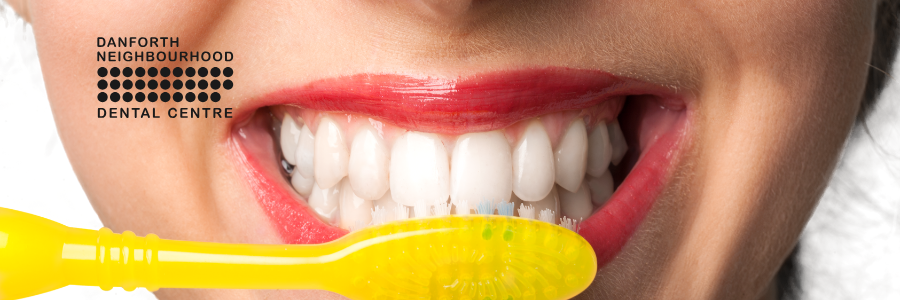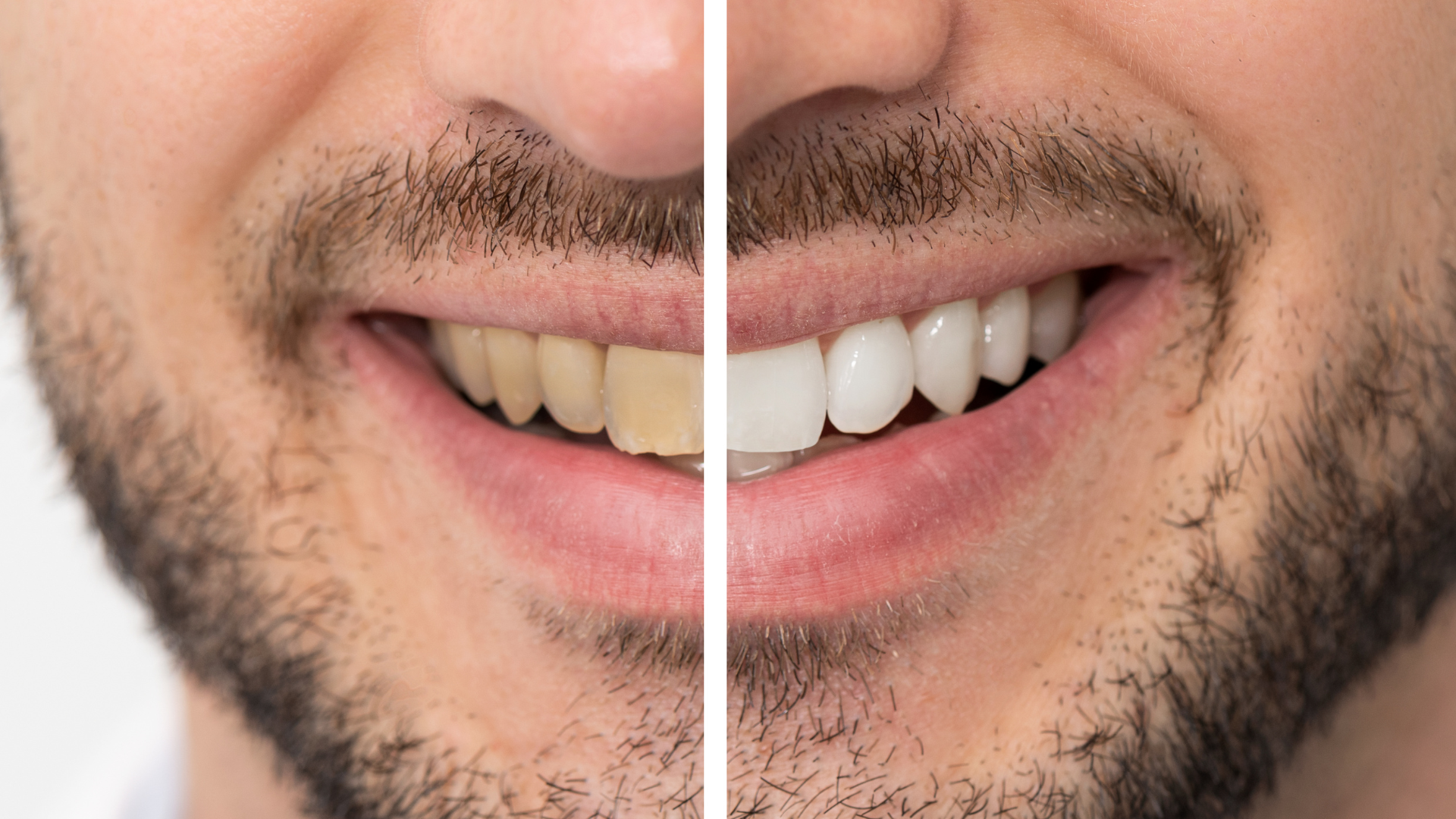6 Simple Steps to Smile Maintenance and Dental Health
1. Toothbrush
Choosing the right toothbrush is a big deal for keeping your mouth healthy. At Danforth Neighbourhood Dental Centre, we see a lot of people who aren't sure what to look for. The most important thing is to find a brush that feels comfortable in your hand and cleans your teeth effectively without hurting your gums.
Here are a few things to think about:
- Bristle Type: Most dentists recommend soft bristles. They clean well without being too harsh on your enamel or gums. Medium or hard bristles can sometimes cause damage over time.
- Head Size: You want a brush head that can easily reach all areas of your mouth, including the back molars. A smaller head is often better for maneuverability.
- Handle Design: Look for a handle that gives you a good grip. Some have special shapes or rubber grips to make brushing easier.
When you brush, don't forget to angle the bristles towards the gum line. Gentle, circular motions work best. Remember to replace your toothbrush every three to four months, or sooner if the bristles start to fray. A worn-out brush just won't clean as well.
Brushing twice a day, for two minutes each time, is the standard advice for a reason. It really does make a difference in removing plaque and food particles before they cause problems. Make sure you're covering all surfaces of your teeth – the fronts, the backs, and the chewing surfaces.
2. Toothpaste
Choosing the right toothpaste is a big part of keeping your smile healthy. It's not just about fresh breath; toothpaste works to clean your teeth and protect them from problems. At Danforth Neighbourhood Dental Centre, we see how different ingredients can make a real difference.
Look for fluoride in your toothpaste; it's a key ingredient for strengthening tooth enamel and preventing cavities.
Here are some things to consider when picking a toothpaste:
- Fluoride Content: Most dentists agree that fluoride is important for cavity prevention. It helps remineralize tooth enamel, making it more resistant to acid attacks from food and bacteria.
- Abrasiveness: Toothpastes vary in how much they scrub. Some are more abrasive, which can help remove surface stains, but too much can wear down enamel over time. Gentler formulas are often best for daily use.
- Specific Needs: Do you have sensitive teeth? Are you prone to gum issues? Many toothpastes are formulated to address these specific concerns, like reducing sensitivity or helping with gingivitis.
Using toothpaste correctly is also important. You only need a pea-sized amount for adults and a smear for young children. Brushing for two minutes, twice a day, with your chosen toothpaste helps get the most benefit.
3. Dental Floss
Flossing is a really important part of keeping your mouth healthy, even if it feels like a chore sometimes. It gets to those spots your toothbrush just can't reach, like between your teeth and under the gum line. If you skip this step, you're leaving behind food bits and plaque, which can lead to cavities and gum problems.
Here’s how to get the most out of flossing:
- Take about 18 inches of floss. Wrap most of it around one of your middle fingers, and the rest around the middle finger of the opposite hand.
- Hold the floss tightly between your thumbs and forefingers. Guide it gently between your teeth using a rubbing motion.
- Curve the floss into a C-shape against one tooth. Slide it gently into the space between the gum and the tooth until you feel some resistance.
- Gently scrape up and down against the side of the tooth. Repeat this on the adjacent tooth, then move to the next gap.
Using floss correctly makes a big difference in preventing gum disease. It might take a little practice to get the hang of it, but it's worth the effort for a healthier smile.
Remember, consistent flossing helps remove plaque and food particles that brushing alone misses. This simple habit can significantly reduce your risk of cavities and gum inflammation, contributing to overall oral well-being.
At Danforth Neighbourhood Dental Centre, we always stress the importance of flossing as part of your daily routine. It’s a small step that pays off big time for your dental health.
4. Mouthwash
Mouthwash can be a helpful addition to your daily routine, but it's not a replacement for brushing and flossing. Think of it as a little extra boost for your oral hygiene. It can help rinse away food particles that might be left behind and can freshen your breath. Some mouthwashes also contain ingredients that can help fight plaque or strengthen enamel.
When choosing a mouthwash, consider what you want it to do. Are you looking for:
- Antiseptic action: To kill bacteria that cause bad breath and gum issues.
- Fluoride treatment: To help prevent cavities and make your teeth stronger.
- Cosmetic benefits: Primarily for freshening breath.
It's always a good idea to talk to your dentist at Danforth Neighbourhood Dental Centre about which type of mouthwash might be best for your specific needs. They can guide you based on your oral health. Remember, using mouthwash correctly is important. Swish it around your mouth for the time recommended on the bottle, usually about 30 seconds to a minute, and then spit it out. Don't swallow it!
While mouthwash can contribute to a cleaner feeling mouth, it doesn't reach into the tight spaces between teeth and under the gum line the way floss does. Therefore, it should always be used in conjunction with regular brushing and flossing, not as a substitute.
5. Tongue Scraper
Don't forget your tongue! It's a breeding ground for bacteria that can cause bad breath and affect your overall oral health. Using a tongue scraper is a simple yet effective way to remove these unwanted guests.
Here’s how to get the most out of it:
- Choose a scraper made of metal, like stainless steel or copper. They're generally more durable and easier to clean than plastic ones.
- Start at the back of your tongue and gently pull the scraper forward. You'll be surprised by what comes off!
- Rinse the scraper after each pass and repeat until your tongue feels clean. Aim for two to three passes.
- Follow up with a rinse of water or your preferred mouthwash.
Regularly scraping your tongue can make a noticeable difference in how fresh your mouth feels. It's a small step that contributes significantly to good dental hygiene, complementing your regular brushing and flossing routine. For those interested in cosmetic improvements, like teeth whitening in Toronto, a clean tongue is a great starting point for a brighter smile. At Danforth Neighbourhood Dental Centre, we believe in a holistic approach to oral care, and that includes paying attention to every part of your mouth.
Keeping your tongue clean is just as important as cleaning your teeth. It helps reduce the bacteria that can lead to bad breath and can even improve your sense of taste.
6. Water
You might not think of water as a dental tool, but it plays a big part in keeping your mouth healthy. After you eat, especially if you can't brush right away, rinsing your mouth with water can help wash away food bits and sugars. This simple step can make a difference in preventing cavities and gum problems.
Think of it as a quick rinse between brushings. It helps dilute acids that bacteria in your mouth produce from leftover food. These acids can weaken your tooth enamel, and rinsing with water helps reduce that effect. It's a good habit to get into, especially after snacks or meals when you're out and about.
Here’s why water is so good for your smile:
- It helps clear out food particles.
- It can neutralize mouth acids.
- Staying hydrated keeps your saliva production up, which is your mouth's natural defense.
At Danforth Neighbourhood Dental Centre, we always remind patients that good hydration supports overall oral health. It's a simple, accessible way to support your dental hygiene routine every day.
Drinking enough water throughout the day is a straightforward way to support your mouth's natural cleaning process and maintain a healthy environment for your teeth and gums.
Keeping Your Smile Bright
So, that's it. Taking care of your teeth doesn't have to be a big production. Just a little bit of regular attention goes a long way. Brushing, flossing, eating well, and seeing your dentist are the main things. It's really about building these habits into your daily life. You'll feel better, and your smile will thank you for it. Don't put it off; start today and keep that smile healthy and happy for years to come.






